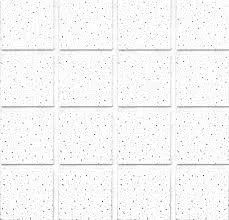Nov . 24, 2024 07:17 Back to list
what is mineral fiber board
Understanding Mineral Fiber Board A Comprehensive Overview
Mineral fiber board, also known as mineral fiber insulation board or mineral wool board, is an advanced building material that plays a crucial role in modern construction and insulation techniques. Composed primarily of mineral fibers, such as rock wool or fiberglass, this type of board offers excellent thermal and acoustic insulation properties while being resistant to fire, moisture, and a variety of environmental stresses. In this article, we will explore the characteristics, advantages, and applications of mineral fiber board, along with its significance in sustainable building practices.
Composition and Production
Mineral fiber boards are made from naturally occurring materials, primarily basalt rock or blast furnace slag. The production process involves melting these raw materials at high temperatures and then spinning them into fibers. These fibers are subsequently bonded together using various resins, creating a dense board that retains the insulating properties. The final product is lightweight, easy to handle, and versatile in its applications, making it a preferred choice for many different construction projects.
Key Characteristics
1. Thermal Insulation One of the primary benefits of mineral fiber board is its excellent thermal insulation properties. It helps regulate indoor temperatures, reducing the need for heating and cooling systems, which can significantly lower energy bills.
2. Acoustic Insulation Mineral fiber board is also an effective soundproofing material. Its dense and fibrous structure helps absorb sound waves, making it ideal for use in commercial buildings, schools, and residential projects where noise reduction is essential.
3. Fire Resistance Mineral fiber boards are non-combustible, which means they can withstand high temperatures without contributing to the spread of fire. This characteristic makes them suitable for use in fire-rated assemblies and enhances the overall safety of a building.
4. Moisture Resistance These boards are resistant to moisture and do not promote the growth of mold or mildew, making them an excellent choice for areas prone to humidity, such as basements and bathrooms.
what is mineral fiber board

5. Eco-Friendly As mineral fiber boards are made from natural materials and often contain recycled content, they align well with sustainable building practices. Furthermore, their durability and longevity contribute to minimizing waste and the need for frequent replacements.
Applications
Mineral fiber board is widely used across various sectors in construction, including
- Commercial Buildings Often utilized in office spaces and retail environments where sound control and energy efficiency are paramount. - Industrial Applications In factories and warehouses, mineral fiber boards are used for thermal insulation and fire protection.
- Residential Projects Home builders frequently incorporate mineral fiber boards into walls, ceilings, and roof systems to enhance energy efficiency and acoustic comfort.
- HVAC Systems Mineral fiber board is commonly used for duct insulation, ensuring that air conditioning and heating systems operate efficiently while minimizing sound transmission.
Conclusion
In summary, mineral fiber board is a versatile and effective building material that offers various benefits, including thermal and acoustic insulation, fire resistance, and moisture protection. Its environmentally friendly properties further establish its significance in today's sustainable building practices. As the construction industry continues to evolve, the demand for innovative materials like mineral fiber board will surely grow, making it an integral component of modern architecture and design. Whether for commercial, industrial, or residential applications, mineral fiber board stands out as a reliable choice, providing comfort, safety, and efficiency for years to come.
-
Quality Ceiling Trap Doors & Access Panels | Easy & Secure AccessNewsAug.30,2025
-
Durable Ceiling T Grid Systems | Easy InstallationNewsAug.29,2025
-
PVC Gypsum Ceiling: Durable, Laminated Tiles for Modern SpacesNewsAug.28,2025
-
Pvc Gypsum Ceiling Is DurableNewsAug.21,2025
-
Mineral Fiber Board Is DurableNewsAug.21,2025
-
Ceiling Tile Clip Reusable DesignNewsAug.21,2025







